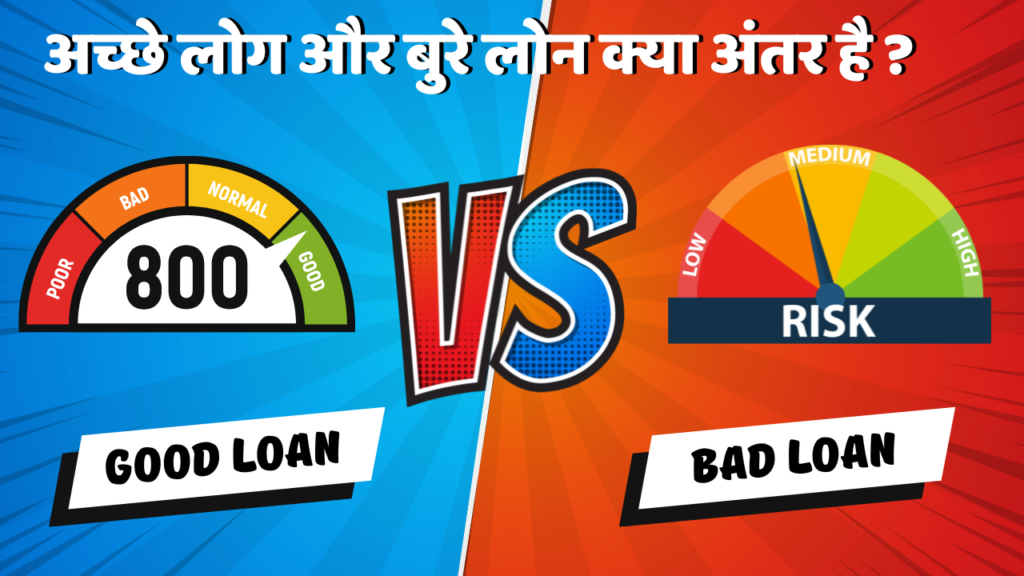Managing a business loan efficiently is essential to maintaining the financial health of your business. However, unforeseen circumstances such as economic downturns or cash flow issues can make loan repayment challenging. If you find yourself unable to repay an IDBI Bank business loan, loan settlement may provide a potential solution.
Loan settlement involves negotiating with the bank to repay a portion of the outstanding loan amount, instead of the entire debt. While this may offer immediate relief, it also comes with consequences such as a negative impact on your credit score. In this blog, we will walk you through the detailed process of settling your IDBI Bank business loan and important considerations along the way.
What is a Business Loan Settlement?
A business loan settlement is a process where a borrower negotiates with the lender, in this case, IDBI Bank, to close the loan account by paying a lump sum amount that is less than the outstanding loan balance. This occurs when the borrower is unable to repay the loan due to financial difficulties, and the bank agrees to settle the loan for a reduced payment.
The lender may agree to this if they assess that the borrower’s business is no longer in a position to repay the full loan amount, and recovering a portion of the loan is a better option than pursuing legal action or writing off the debt.
Why and When Should You Consider Settling Your IDBI Business Loan?
You should consider settling your IDBI Bank business loan if:
- Financial Struggles: If your business is facing severe financial difficulties and making loan repayments is no longer feasible.
- Defaulting on Payments: If you have defaulted on multiple EMIs (Equated Monthly Instalments) and are struggling to meet the overdue payments.
- Legal Action or Recovery Notices: If IDBI Bank has initiated legal proceedings or sent recovery notices, loan settlement could help you avoid further legal complications.
- Ballooning Penalties and Interest: If interest and penalty charges have compounded and increased the total loan liability beyond what you can manage.
It’s important to note that loan settlement is usually a last-resort option because of the negative impact it has on your credit history. Therefore, this option should be considered only when you have exhausted all other alternatives.
Step-by-Step Process for Settling IDBI Business Loan
Step 1: Evaluate Your Financial Position
Before approaching the bank, you need to thoroughly assess your business’s financial standing. Consider the following:
- Outstanding Loan Amount: How much do you still owe, including the principal, interest, and any penalties?
- Available Funds: How much can you realistically offer as a one-time payment to settle the loan?
- Cash Flow: Assess your current and projected cash flow to determine if settlement is truly the best option.
Having a clear understanding of your financial situation will help you during negotiations with IDBI Bank.
Step 2: Contact IDBI Bank’s Loan Recovery Department
Once you’ve assessed your financial situation, reach out to the loan recovery department of IDBI Bank. You can initiate this process by:
- Writing a Settlement Request Letter: Explain your financial difficulties and propose settling the loan for a reduced amount. Make sure to provide supporting documents, such as business financial statements, bank account details, and proof of income or losses.
- Follow Up with the Bank: After submitting your settlement request, follow up regularly to ensure it is being reviewed. Banks usually take some time to assess settlement requests, so patience is key.
IDBI Bank will review your request based on your repayment history, financial health, and the likelihood of recovering the loan through regular means.
Step 3: Negotiate the Settlement Offer
Once the bank has assessed your request, they will propose a settlement amount. This could range from 50% to 80% of the outstanding loan amount, depending on your financial condition and their internal policies. During negotiations:
- Aim for a Fair Settlement: Present your financial constraints honestly and aim to negotiate the lowest possible settlement amount.
- Request Interest and Penalty Waivers: You can request the bank to waive accrued interest or penalties, further reducing the settlement amount.
- Negotiate for a One-Time Lump Sum Payment: Most banks prefer a lump sum payment, so try to arrange the funds for a one-time payment rather than settling in instalments.
A successful negotiation can result in significant savings and help you close your loan for a fraction of the original outstanding amount.
Step 4: Get the Agreement in Writing
Once both parties agree on the settlement amount, it is critical to have the terms in writing. The written agreement should specify:
- Final Settlement Amount: The exact amount you will pay to settle the loan.
- Deadline for Payment: The date by which the settlement amount must be paid.
- Waiver of Further Claims: Confirmation that the bank will not pursue further legal action or claims after the settlement is complete.
Having a clear, written agreement protects you from any future disputes and ensures that the bank closes your loan account as agreed.
Step 5: Make the Payment and Obtain a No-Dues Certificate
After the settlement agreement is signed, make the agreed-upon payment within the specified time frame. Once the payment is made:
- Request a No-Dues Certificate: This document confirms that you have settled the loan and have no further liabilities to the bank.
- Ensure Credit Bureau Updates: Make sure IDBI Bank reports the settlement to credit bureaus, so your loan is marked as “settled” instead of “written off.”
Obtaining the No-Dues Certificate and ensuring the correct reporting to credit agencies is essential to finalise the settlement process.
Impact of Loan Settlement on Credit Score
While settling your business loan can provide immediate financial relief, it will negatively impact your credit score. A settled loan is marked on your credit report as “settled” rather than “fully paid,” which indicates to future lenders that you were unable to repay the loan in full. This can result in:
- Reduced Creditworthiness: Your ability to secure future loans or credit lines may be affected.
- Prolonged Negative Impact: The “settled” status can stay on your credit report for up to seven years, limiting your borrowing capacity during this period.
It’s important to weigh the benefits of settlement against its long-term impact on your credit.
Other Alternatives to Loan Settlement
Before opting for loan settlement, consider these alternatives:
Loan Restructuring
Loan restructuring allows you to modify the loan’s terms, such as extending the repayment tenure or reducing the interest rate. This could make it easier for you to continue repaying the loan without opting for settlement.
Refinancing
You may be able to refinance the loan by taking out a new loan with better terms to repay the existing loan. This can provide lower interest rates or more manageable monthly payments, avoiding the need for settlement.
Debt Consolidation
If you have multiple loans, consolidating them into a single loan with a lower interest rate may ease your financial burden, allowing you to manage your debts without needing to settle.
Things to Consider Before Settling Your Loan
- Long-Term Impact on Credit: Be aware that a settled loan can negatively affect your credit score for several years.
- Lump-Sum Payment Requirement: Ensure you have sufficient funds to make the one-time payment required for the settlement.
- Legal and Financial Implications: Get legal advice if needed to ensure the settlement agreement protects your interests.
- Future Borrowing Needs: Consider whether you will need to borrow again in the near future, as settling a loan can limit your access to credit.
Conclusion
Settling your IDBI Bank business loan can offer a way out of financial hardship if you are unable to make regular repayments. However, this step should be taken with caution, as it will have long-lasting effects on your credit score and borrowing ability. Make sure to evaluate all other alternatives, such as loan restructuring or refinancing, before opting for settlement.
If you do decide to proceed with settlement, ensure you follow the correct process, negotiate a fair settlement amount, and obtain all necessary documentation, such as a No-Dues Certificate, to close your loan account properly.
Frequently Asked Questions (FAQ’s)
Ans: No, settlement is typically offered only when you are unable to make regular payments due to financial distress.
Ans: IDBI Bank may agree to settle the loan for 50% to 80% of the total outstanding balance, depending on your financial situation.
Ans: Yes, settling a loan will negatively impact your credit score, making it harder to borrow in the future.
Ans: Yes, if you can restructure the loan, it allows you to maintain your credit score and continue making payments under modified terms.
Ans: The settlement process may take anywhere from a few weeks to a couple of months, depending on the bank’s internal procedures.













